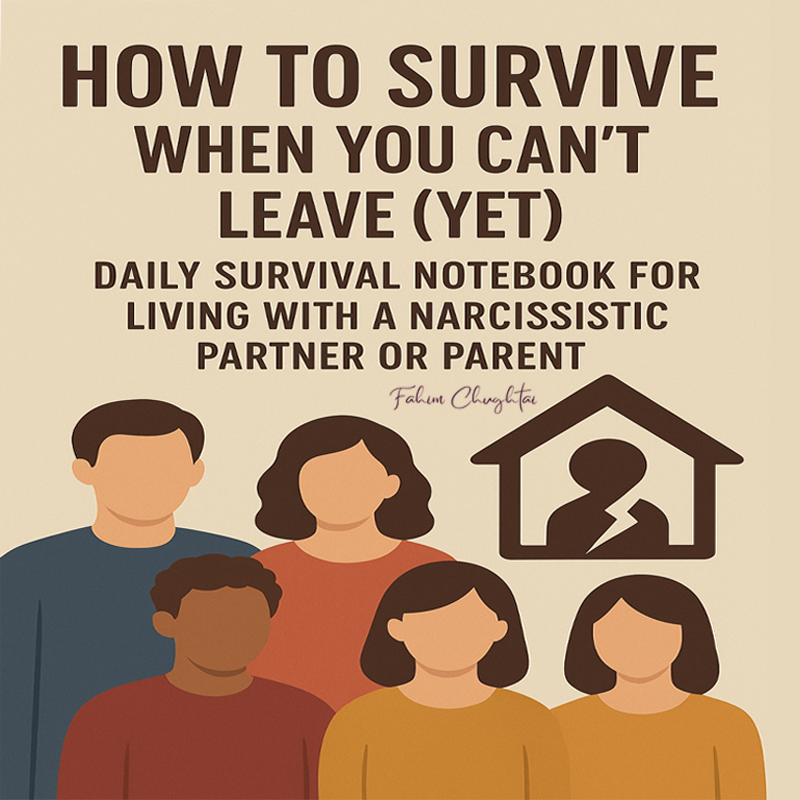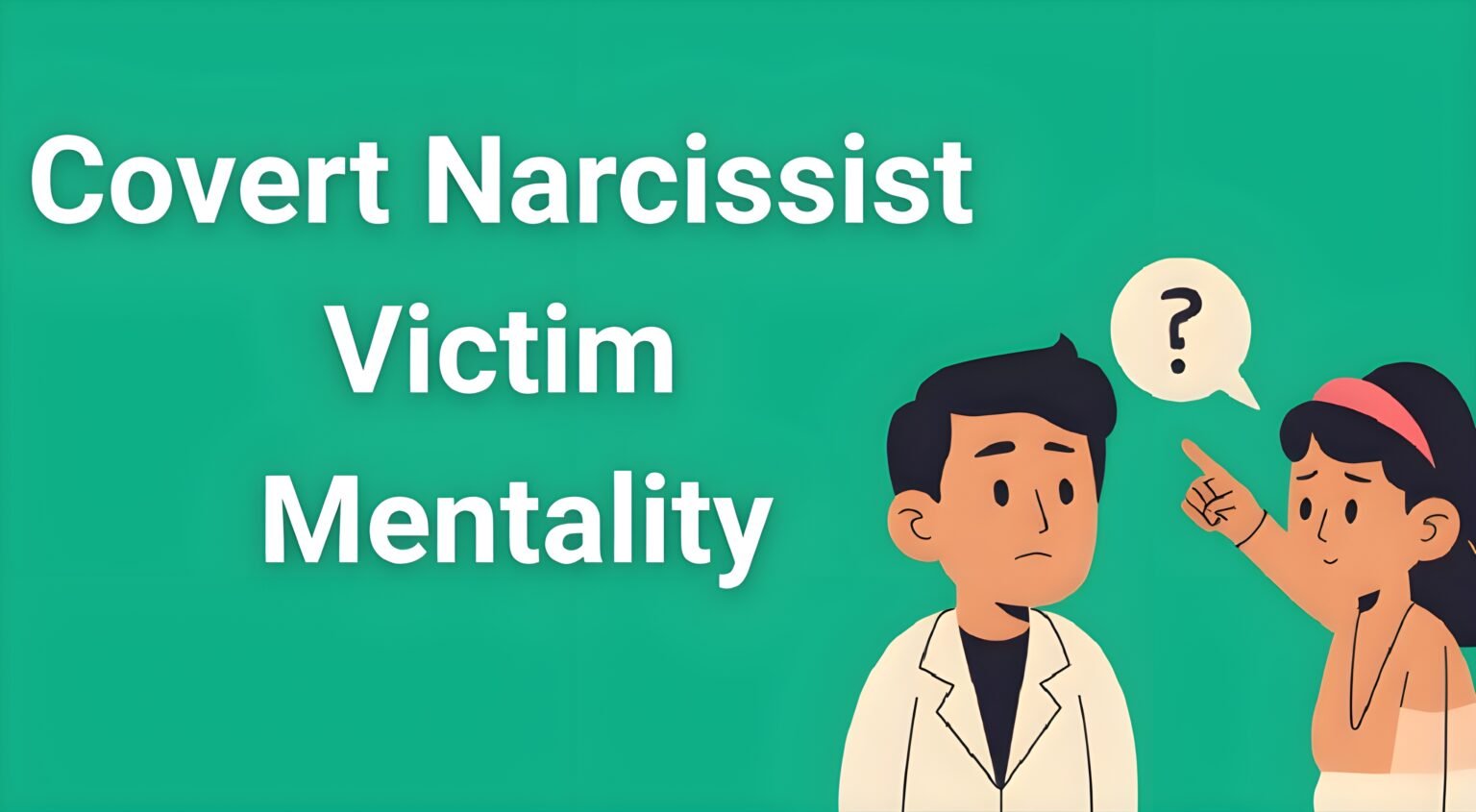Have you ever encountered someone who constantly portrays themselves as the victim, yet somehow always manages to make everything about them? Someone who appears humble and vulnerable on the surface, but leaves you feeling emotionally drained and confused after every interaction? You might be witnessing the covert narcissist victim mentality in action—one of the most insidious forms of psychological manipulation that can completely upend your reality.
- What Is Covert Narcissist Victim Mentality?
- The Psychology Behind the Victim Role
- Recognizing the Warning Signs
- The Impact on Relationships
- How They Maintain Control
- Breaking Free: Recognition and Recovery
- Protecting Your Mental Health
- Moving Forward: Creating Healthier Relationships
- Finding Your Path to Freedom
- Frequently Asked Questions
- Conclusion
Understanding this hidden pattern of behavior could be the key to protecting your mental health and recognizing toxic relationships before they cause irreparable damage to your emotional well-being.
What Is Covert Narcissist Victim Mentality?
The covert narcissist victim mentality represents a sophisticated psychological defense mechanism where individuals with narcissistic traits consistently position themselves as the wronged party in virtually every situation. Unlike their overt counterparts who display grandiosity openly, covert narcissists mask their self-centeredness behind a carefully constructed facade of vulnerability and suffering.
This victim stance serves multiple purposes: it garners sympathy and attention, deflects accountability for their actions, and manipulates others into providing the emotional validation they desperately crave. The covert narcissist victim mentality becomes their primary tool for maintaining control while appearing powerless.
Am I Dealing With a Covert Narcissist — or Just Toxic Behavior?
What makes this pattern particularly dangerous is how convincing these individuals can be. Their stories of hardship and injustice often contain elements of truth, making it incredibly difficult to distinguish between genuine suffering and calculated manipulation. They’ve perfected the art of emotional theater, knowing exactly which buttons to push to activate your empathy and compassion.
The Psychology Behind the Victim Role
Understanding why covert narcissists adopt this victim mentality requires examining the deep-seated psychological wounds that fuel their behavior. At their core, individuals with covert narcissistic traits struggle with profound feelings of inadequacy and shame, despite maintaining an internal sense of superiority.
The victim role provides them with a perfect solution to this internal contradiction. By positioning themselves as perpetually wronged, they can maintain their grandiose self-image while explaining away their failures and shortcomings. If they’re always the victim, then their lack of success or happiness must be someone else’s fault—never their own.
This psychological pattern often develops during childhood, particularly in environments where emotional needs weren’t consistently met or where the child learned that playing the victim was the most effective way to receive attention and care. The covert narcissist victim mentality becomes a survival strategy that continues long into adulthood, even when it’s no longer necessary or appropriate.
Research suggests that this victim stance also serves as a form of psychological protection against the crushing weight of their own shame and self-criticism. Rather than facing their own role in creating problems or disappointments, they externalize all blame onto others, maintaining their fragile sense of self-worth through constant victimization narratives.
Recognizing the Warning Signs
Chronic Victimization Stories
One of the most telling signs of covert narcissist victim mentality is the sheer volume and consistency of their victimization stories. These individuals seem to attract drama and conflict wherever they go, yet somehow it’s never their fault. They collect injustices like badges of honor, each story more tragic than the last.
Pay attention to patterns in their storytelling. Notice how they’re always the innocent party, how others are consistently portrayed as cruel or unreasonable, and how they never seem to learn from these repeated “attacks” on their character. The covert narcissist victim mentality ensures they remain blameless while painting everyone else as the perpetrator.
Emotional Manipulation Through Suffering
These individuals have mastered the art of weaponizing their pain. They’ll share their struggles in ways that make you feel guilty for having your own problems or for not doing enough to help them. Their suffering becomes a tool for controlling your emotions and behavior.
When you try to set boundaries or express your own needs, they’ll often respond with increased tales of woe, effectively silencing your concerns by making their pain seem more urgent and important. This manipulation through suffering is a hallmark of the covert narcissist victim mentality.
Passive-Aggressive Behavior
Rather than expressing anger or frustration directly, covert narcissists often resort to passive-aggressive tactics while maintaining their victim status. They might give you the silent treatment, make subtle digs disguised as jokes, or “forget” important commitments, all while claiming they’re the ones being mistreated.
This behavior allows them to express their hostility while maintaining plausible deniability. If confronted, they can easily flip back into victim mode, claiming you’re being too sensitive or misinterpreting their innocent actions.
Lack of Accountability
Perhaps the most frustrating aspect of dealing with someone who exhibits covert narcissist victim mentality is their complete inability to take responsibility for their actions. They’ve developed an elaborate mental framework that always positions them as the wronged party, regardless of the evidence to the contrary.
When presented with clear examples of their harmful behavior, they’ll minimize, deny, or deflect, often turning the conversation back to how they’ve been hurt or misunderstood. This consistent avoidance of accountability keeps them locked in their victim role while preventing any real growth or change.
The Impact on Relationships
Emotional Exhaustion
Relationships with individuals who consistently display covert narcissist victim mentality can be incredibly draining. You may find yourself constantly walking on eggshells, trying to avoid saying or doing anything that might trigger another crisis or victimization story.
The emotional labor required to maintain these relationships is enormous. You’re constantly managing their feelings, providing comfort and validation, while your own emotional needs remain unmet and often unacknowledged.
Reality Distortion
Over time, exposure to the covert narcissist victim mentality can cause you to question your own perceptions and memories. Their constant reframing of events, combined with their apparent vulnerability, can make you doubt whether your experiences and feelings are valid.
This reality distortion is particularly insidious because it happens gradually. You might find yourself apologizing for things you didn’t do, accepting blame for their emotions, or feeling crazy for remembering events differently than they do.
Trauma Bonding
The cycle of crisis and resolution that characterizes relationships with covert narcissists can create powerful trauma bonds. The intense emotional highs and lows, combined with their apparent vulnerability, can make you feel deeply connected to them despite the toxicity of the relationship.
Understanding trauma bonding is crucial for anyone trying to break free from the grip of someone with covert narcissist victim mentality. These bonds can feel like love or deep compassion, making it incredibly difficult to recognize the manipulation at play.
How They Maintain Control
Guilt and Shame Tactics
Covert narcissists excel at making others feel guilty for their own emotional states and life circumstances. They’ll subtly (or not so subtly) imply that your happiness or success somehow contributes to their suffering, creating a dynamic where you feel responsible for their well-being.
This guilt manipulation is central to the covert narcissist victim mentality. By making you feel responsible for their emotional state, they gain tremendous power over your decisions and behavior. You might find yourself making choices based on how they’ll affect the narcissist rather than what’s best for you.
Creating Dependency
Through their constant crises and emotional needs, covert narcissists often create situations where others become emotionally or practically dependent on their drama. You might find that helping them or managing their emotions becomes a central part of your identity or daily routine.
This dependency works both ways—while they depend on you for emotional validation and support, you might become addicted to the feeling of being needed or the intermittent validation they provide when they’re in a good mood.
Isolating Support Systems
The covert narcissist victim mentality often includes narratives about how others don’t understand them or have abandoned them in their time of need. Over time, these stories can isolate both the narcissist and their primary target from broader support systems.
They might subtly discourage your relationships with others, suggest that your friends or family don’t really care about you, or create crises that prevent you from maintaining connections outside the relationship. This isolation makes it much harder to gain perspective on the toxic dynamics at play.
Breaking Free: Recognition and Recovery
Acknowledging the Pattern
The first step in protecting yourself from covert narcissist victim mentality is recognizing the pattern for what it is. This recognition can be incredibly difficult because these individuals often present as genuinely suffering and in need of help.
Trust your instincts if relationships feel consistently one-sided, if you’re always the one providing support without receiving it in return, or if you find yourself feeling guilty for having your own needs and problems. These feelings often indicate that you’re dealing with someone who uses victimhood as a manipulation tactic.
Setting Healthy Boundaries
Once you’ve recognized the pattern, setting and maintaining healthy boundaries becomes crucial. This means limiting how much emotional energy you invest in their crises, refusing to accept blame for their emotions, and prioritizing your own mental health.
Boundary setting with someone who exhibits covert narcissist victim mentality will likely be met with increased victim behaviors. They might escalate their suffering, accuse you of being cruel or unsupportive, or threaten self-harm. Remember that their emotional reactions to your boundaries are not your responsibility to manage.
Seeking Professional Support
Dealing with covert narcissist victim mentality can be incredibly confusing and emotionally challenging. Professional support can help you gain clarity about toxic relationship dynamics and develop strategies for protecting your mental health.
Many people who’ve been in relationships with covert narcissists struggle with self-doubt, anxiety, and depression. Therapy can provide a safe space to process these experiences and rebuild your sense of self-worth and reality.
For those seeking immediate clarity about their situation, specialized assessment services can provide expert analysis of relationship dynamics and personalized strategies for moving forward. These services offer professional insight that can help validate your experiences and provide clear direction for healing.
Protecting Your Mental Health
Rebuilding Your Reality
After prolonged exposure to covert narcissist victim mentality, you might need to actively work on rebuilding your sense of reality and trust in your own perceptions. This process takes time and often requires professional support.
Journaling can be particularly helpful in this process. Writing down your experiences and feelings without censoring yourself can help you reconnect with your own truth and identify patterns you might have missed while caught up in the narcissist’s drama.
Breaking Trauma Bonds
If you’ve developed trauma bonds with someone who displays covert narcissist victim mentality, breaking these bonds requires understanding the neurological basis of these attachments. Trauma bonds aren’t a sign of weakness—they’re a natural response to cycles of intermittent reinforcement and emotional intensity.
Specialized workbooks and recovery programs can provide structured approaches to breaking these bonds and reclaiming your emotional freedom. These resources offer day-by-day guidance for rewiring your brain’s response to the narcissist and building healthier relationship patterns.
Developing Emotional Independence
Recovery from relationships with covert narcissists often involves learning to validate your own emotions and experiences rather than constantly seeking external validation. This emotional independence is crucial for preventing future manipulation and building healthier relationships.
Practice listening to your inner voice, trusting your feelings, and making decisions based on your own needs and values rather than trying to manage someone else’s emotions or reactions.
Moving Forward: Creating Healthier Relationships
Learning to Trust Again
One of the biggest challenges after dealing with covert narcissist victim mentality is learning to trust others again. The manipulation and reality distortion can leave you feeling hypervigilant and suspicious of others’ motives.
Healing involves finding a balance between healthy skepticism and openness to genuine connection. Look for people who take responsibility for their actions, respect your boundaries, and demonstrate empathy for others beyond themselves.
Still Living With Them? You’re Not Helpless.

Building Support Networks
Rebuilding your support network after isolation is crucial for long-term healing. Surround yourself with people who validate your experiences, support your growth, and demonstrate healthy relationship dynamics.
If you’re still in the process of leaving a toxic situation, having a strong support network becomes even more critical. For those who can’t leave immediately, specialized resources can provide strategies for maintaining your mental health while planning your exit.
Preventing Future Manipulation
Understanding covert narcissist victim mentality helps you recognize these patterns in future relationships before they cause significant damage. Pay attention to early warning signs like excessive victim stories, lack of accountability, and attempts to make you feel guilty for setting boundaries.
You’ve Seen the Patterns. Now Break the Bond.
Trust your instincts when something feels off in a relationship. Your emotional responses are valuable data about the health of your interactions with others.
Finding Your Path to Freedom
Recovery from the impact of covert narcissist victim mentality is absolutely possible, but it requires patience, support, and often professional guidance. Remember that healing isn’t linear—you might have setbacks or moments of doubt, and that’s completely normal.
The most important thing to remember is that you’re not responsible for fixing or saving someone who consistently plays the victim while causing harm to others. Your primary responsibility is to your own mental health and well-being.
Whether you’re just beginning to recognize these patterns or you’re well into your healing journey, remember that support is available. Professional resources, specialized workbooks, and expert guidance can provide the clarity and tools you need to break free from toxic dynamics and build the healthy, fulfilling relationships you deserve.
Frequently Asked Questions
Q: How can I tell the difference between someone who is genuinely struggling and someone with covert narcissist victim mentality?
A: Genuine victims show growth over time, take some responsibility for their healing, express empathy for others, and don’t consistently use their struggles to manipulate or control others. Covert narcissists show a chronic pattern of victimization with no personal growth, lack of accountability, and use their suffering as a tool for manipulation.
Q: Can covert narcissists change their victim mentality?
A: Change is theoretically possible but extremely rare and requires professional help and genuine motivation to change. Most individuals with covert narcissist victim mentality lack the self-awareness and accountability necessary for meaningful change. It’s important not to sacrifice your mental health hoping for change that may never come.
Q: Why do I feel guilty for wanting to leave someone who seems to be suffering?
A: This guilt is a natural response to manipulation and doesn’t reflect poorly on your character. Covert narcissists are skilled at making others feel responsible for their emotional state. Remember that true compassion sometimes means stepping away from toxic dynamics.
Q: How long does it take to recover from a relationship with someone who has covert narcissist victim mentality?
A: Recovery time varies depending on the length and intensity of the relationship, the level of trauma bonding, and individual factors. Many people benefit from 30-90 days of focused healing work, though deeper recovery may take longer. Professional support can significantly accelerate the healing process.
Q: What should I do if I recognize these patterns in myself?
A: Self-awareness is the first step toward change. If you recognize victim mentality patterns in yourself, consider working with a therapist who specializes in narcissistic traits. Focus on developing accountability, empathy, and healthier coping mechanisms for dealing with life’s challenges.
Conclusion
Understanding covert narcissist victim mentality is crucial for protecting your mental health and building healthier relationships. These individuals use their apparent vulnerability as a weapon, manipulating others through guilt, shame, and emotional exhaustion while avoiding all accountability for their actions.
Recognition is the first step toward freedom. Trust your instincts, set firm boundaries, and remember that you’re not responsible for managing someone else’s emotions or healing their psychological wounds. Your primary obligation is to your own mental health and well-being.
Recovery is possible, and support is available. Whether through professional therapy, specialized assessment services, or structured recovery programs, you can break free from toxic patterns and build the authentic, fulfilling relationships you deserve. The journey to healing begins with a single step—recognizing that you deserve better than being trapped in someone else’s victim narrative.






